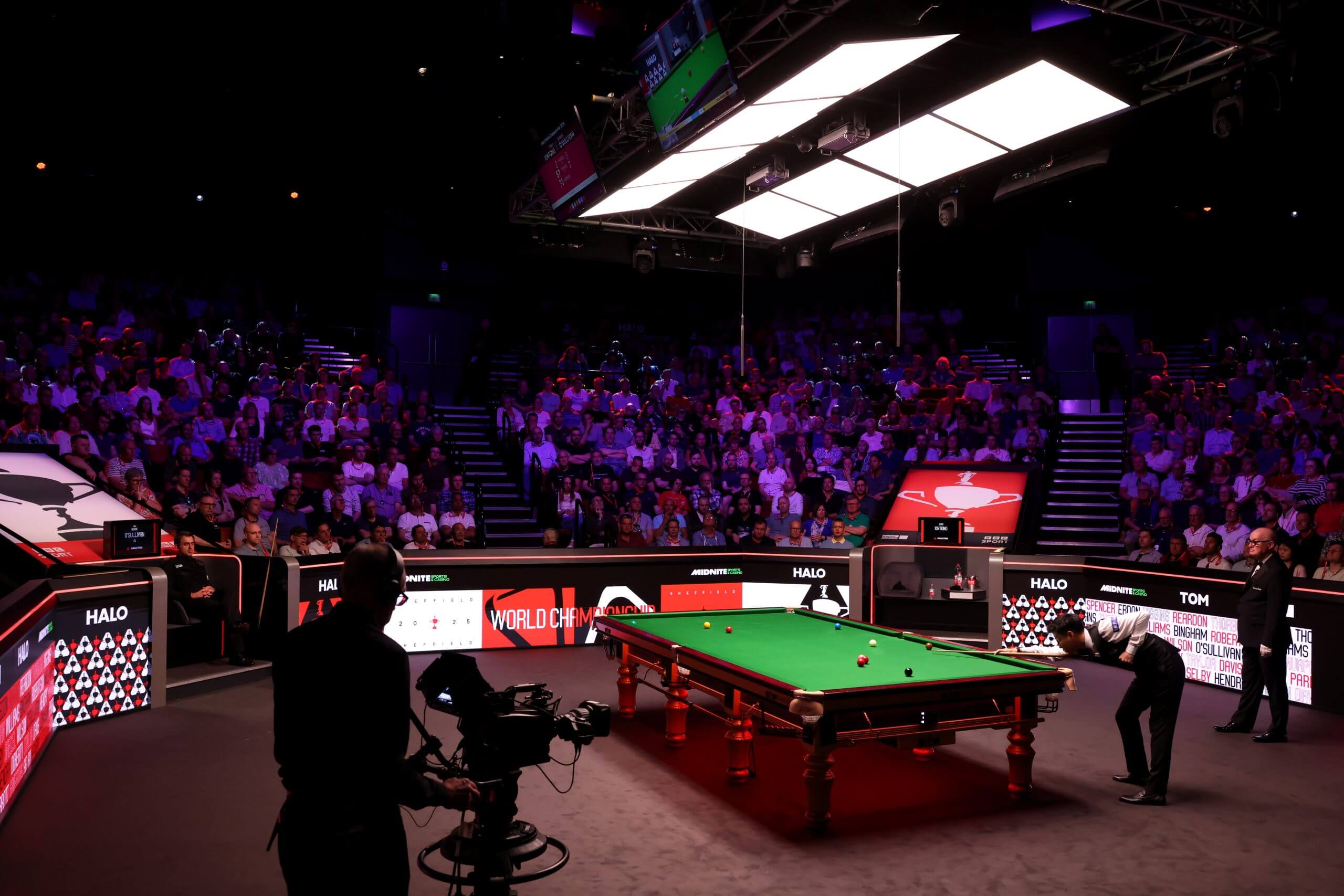
There is suffocating silence in the auditorium as four-time world champion John Higgins attempts to compile a match-winning break.
It has gone 10.30pm on a bank holiday Monday, but no one has left the packed arena. The hushed drama is too captivating to consider an early departure.
A mistimed cough from anyone in the audience could genuinely impact the match. Higgins requires 100 per cent concentration to get over the winning line and, this being snooker, total quiet is preferable.
Advertisement
Most noises are frowned upon; coughing boisterously is unacceptable, a sneeze will get you a few glances, shouting out at the wrong moment, or worse, standing up in the player’s eye line, will get you thrown out.
If you need to use the toilet, well, hold it in. At least until the end of a frame (which last 10 minutes if they’re quick but could be 30-40 minutes if they get bogged down in a tactical battle) … and you’re not allowed back in until another break between frames.
Earlier, a man was scolded for being too noisy with his sweets. “Careful with the wrappers there,” the referee stopped to admonish him.
There isn’t much like this in the whole of sport. In fact, there isn’t much like this in snooker, because this particular venue is literally a sporting theatre.
Higgins is 49 years old and one of the greatest players to ever pick up a cue, but admitted he was nervous during the match and will later cry on television, overcome by the emotion of winning at a place he holds so dear, while dealing with personal family issues.
This is the power of the Crucible Theatre, Sheffield, a sporting venue so intense and so unique it really has to be visited to be believed. So why on earth is there talk of the World Championship moving?
It’s a debate that has been held for years. Snooker moves on, sport moves on, the world moves on. Globalisation, cheap air travel, the internet, for better or worse it’s all happened, but snooker’s World Championship remains rooted deep within its history.
Snooker, which to the uninitiated is basically a grown-up, gentlemanly version of pool (with smaller balls, smaller pockets and a bigger table, played by people in trousers, shirts, waistcoats and occasionally a bow tie), has traditionally been almost exclusively a British sport played within a British sentimentality.

China’s Zhao Xintong plays a shot against England’s Ronnie O’Sullivan during the semi-final on May 1, 2025 in Sheffield, England. (George Wood/Getty Images)
Its main tournaments (also the Masters and the UK Championship, held in London and York in the north of England respectively) are shown on traditional public broadcaster the BBC every year and its fanbase is generally on the older side of the age spectrum.
Apart from a few forebearers like Canadian Cliff Thorburn (the first player to ever score a perfect 147 break, i.e. potting every single available ball on the table in one visit — 15 reds, 15 blacks and then the final colours in sequence), James Wattana (Thailand) or Marco Fu (China), snooker has been played by Brits and watched by Brits, with a high point in 1985 when 18.5 million people tuned into the BBC watch the most dramatic final in the sport’s history when Dennis Taylor beat Steve Davis 18-17 on the final black to win the world title.
Advertisement
For context, that is more than a third of the entire population at a time when, coincidentally or not, football was at its lowest ebb, beset by hooliganism amid crumbling stadiums and falling attendances (only nine English clubs averaged more than 20,000 fans for home matches in 1985, compared to 34 last season).
That gave the sport reference points and famous names for an entire generation.
Nowadays, it probably sits comfortably below football, cricket, rugby and Formula One on the UK general interest sport list and likely tennis, golf and boxing too, but there is a spike in interest around this time of year for the World Championship, particularly if fan favourite Ronnie O’Sullivan is playing. Almost five million watched his last world title victory in 2022.
The sport, boosted by a huge increase in interest (and participation) from China has spread its wings in the last couple of decades and now has big tournaments in China, Hong Kong and, well, what sport would be worth its salt if it hadn’t also expanded into Saudi Arabia?
Two big competitions are now held there – the Riyadh Season Snooker Championship and the Saudi Arabia Snooker Masters. Attendances are relatively low but, as with many sports in Saudi Arabia, the money on offer is high, with combined prize funds for the winners of £750,000 ($995,000).
By comparison, the 980-seat Crucible Theatre, where the World Championship has been held every year since 1977, is old hat, and restrictive in ticket sales and therefore revenue and prize money. The Saudi Masters offers £500,000 ($663,504) to the winner, the same prize money on offer at the World Championship.
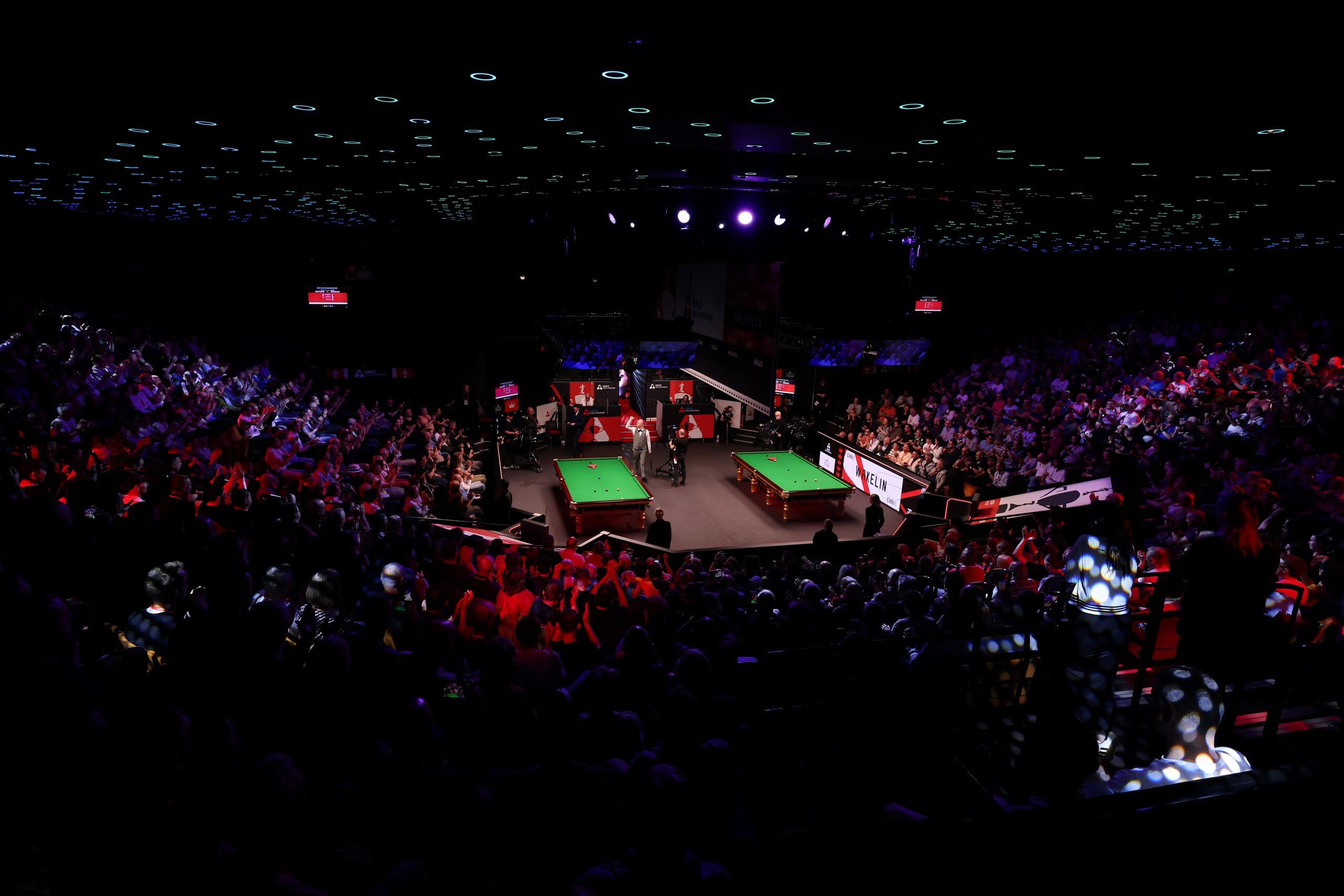
A general view as England’s Chris Wakelin enters the arena to play China’s Zhao Xintong during the quarter-finals on April 29, 2025 (George Wood/Getty Images)
Its corridors are tiny and tight, or charming and cosy, depending on your viewpoint.
“I don’t like the Crucible,” O’Sullivan, who has a snooker academy in Riyadh, told English newspaper The Sun last year, giving a particularly forthright viewpoint.
“I think definitely it’s a wise decision to take it away from Sheffield. I think Saudi Arabia would be great.”
Advertisement
Iranian Hossein Vafaei went, well, a bit further, saying: “Forget the history, you want to go somewhere really nice as a player. You walk round the Crucible and it smells really bad. You go to other countries, and everything is shiny. But here it’s completely different.”
Matchroom Sport, owned by Barry Hearn and which has a 51 per cent stake in the World Snooker Tour, wants to expand, with Hearn last month calling the Crucible’s facilities “no longer fit for purpose” and needed to “move with the times”.
In November, he had explicitly mooted the Saudi possibility for the world championship, saying on BBC Radio 5 live: “Instead of me selling the Crucible out and making £3.5million ($4.64m), £3.7m ($4.90m) on gate, I get a £20m site fee from Saudi. If I get £20m ($26.50m) from site fee, I can double, treble the prize money.”
Matchroom, founded by Barry and run by his son Eddie (although Barry still oversees the snooker side) are big players in boxing and have completely revolutionised darts in the UK with bigger venues, more money, walk-on music, dancing girls, the lot.
Darts hasn’t gone to Saudi Arabia because, in Barry Hearn’s words, they won’t serve alcohol.
But what about snooker? Can it resist the lure of Saudi money? Or would taking the World Championship from the Crucible lose the essence of what makes it so special?
“If you’re playing badly, it’s the worst place in the world. If you’re playing well, it’s the best… it’s the epitome of the purity of sport.”
Stephen Hendry knows this place better than anyone. An iconic figure in snooker and in British sport, the Scot lifted the trophy on seven occasions (the joint highest with O’Sullivan), appeared here for 27 years in a row, from 1986 to 2012, and is still back every year as one of the BBC’s lead commentators.
“The fact it’s a theatre, with a low ceiling, tight seating, it gives you something you can’t replicate in a bigger venue,” he tells The Athletic. “It’s intimate. People are on top of you, the atmosphere is on top of you.
Advertisement
“It does seem inevitable that it is going to leave, which for me would be a disaster for the World Championship. Disaster is maybe a bit strong but it would just never be the same.
“I understand the financial reasons. I just think there are another 11 months in the year and so many other tournaments they can make as big as they possibly can and make as much money as they possibly can, and leave the World Championship as a pure snooker challenge.
“It’s a unique experience. People all over the world ask me for tickets, although you can’t get them because it sells out straight away.”
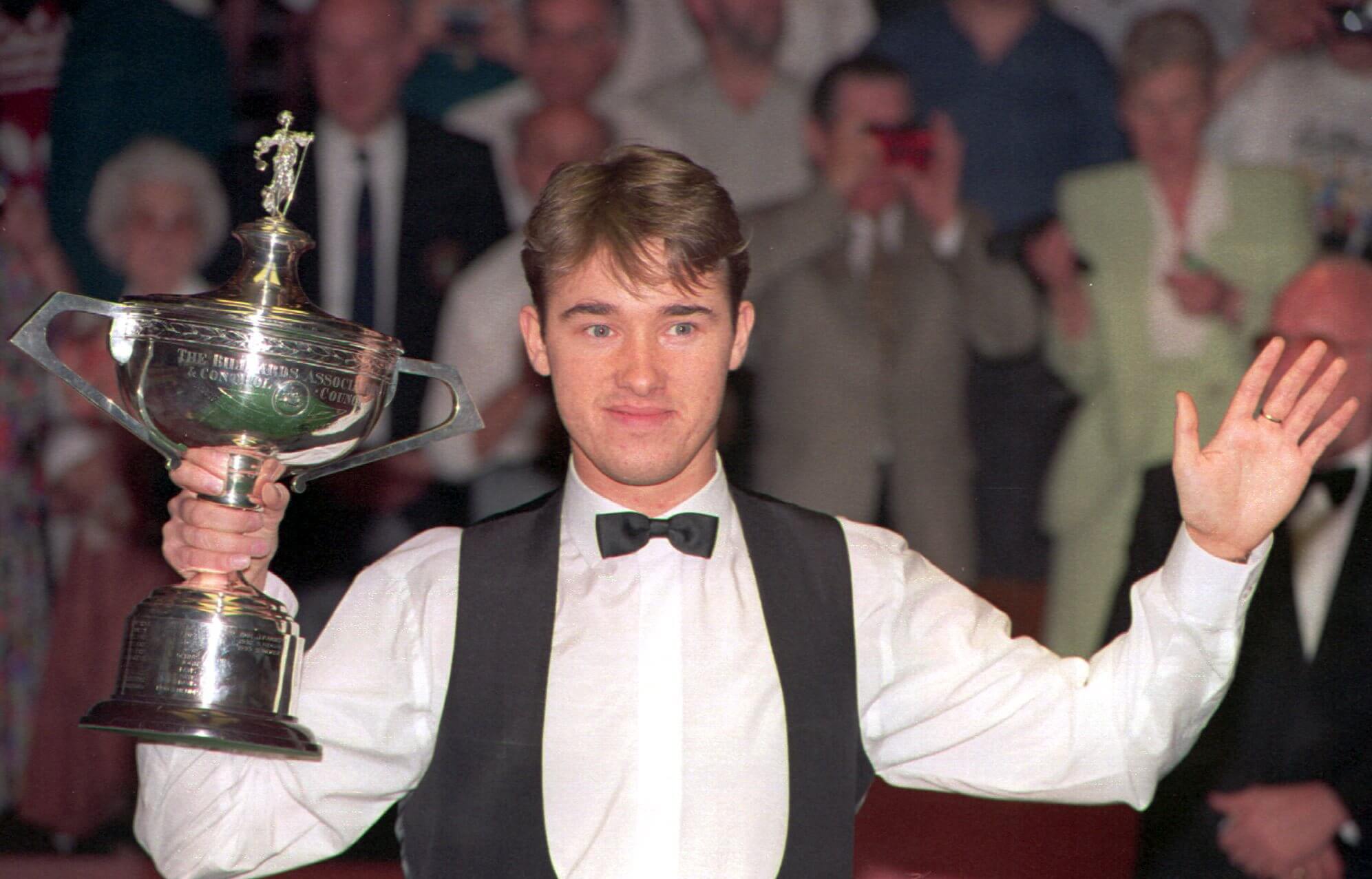
Stephen Hendry has won the world title a record-equalling seven times (Mike Cooper/ALLSPORT via Getty)
Hendry considers that a compromise could be having the tournament on rotation, similar to how The Open in golf rotates around UK venues and then gets the biggest buzz when it returns to its spiritual home of St Andrew’s in Scotland.
“That could be a way around it if they wanted to take it globally,” he adds.
“I’ve not been to Saudi Arabia but I’ve watched the matches on TV and it does look, no disrespect, a bit soulless in terms of the atmosphere.”
He also believes players wouldn’t perform as well in Saudi over a long, gruelling, 17-day tournament because the top pros need that buzz and electricity to keep performing when fatigued. First-round matches at the World Championship are best-of-19 frames, which is the longest you’ll get for any match in other tournaments, then for the final it’s up to best-of-35, over two days.
“I’m speaking from a player’s point of view,” he says. “I totally understand Barry’s arguments and I’m not a businessman. Barry will say; ‘Stephen’s a dinosaur and we have to move on, this is business’. Well, fair enough. I’m just giving my opinion.”
It’s an opinion shared by the vast majority of elder statesmen within the sport. Six-time champion Steve Davis concurred on the BBC that it would be a “sad day” should the tournament leave the Crucible, echoing Hendry’s thoughts that the unique atmosphere could not be replicated elsewhere.
Advertisement
Ex-pro Alan McManus, speaking on TNT Sports, called out Hearn directly last week, saying: “You either have a duty to your pocket and other people’s pockets, or you have a duty to our game, our sport. And to me, that’s the most important one.”
It’s an emotive topic. The Crucible is the home of snooker, familiar to millions. There is no doubting its character; there is warmth and charm, characteristics that modern sporting venues, with their designs centred around sightlines, acoustics and, most importantly, money-making potential, tend to lack.
The Crucible, though, a successful theatre for 49 weeks of the year, is genuinely unique. It also, in The Athletic’s opinion, having been granted backstage access, doesn’t smell.
It means a lot to Sheffield, specifically £4.5m ($5.97m) in economic impact, according to the city’s council. This traditional, working-class northern English city has become snooker’s home not just for the World Championship, but also to Chinese players who base themselves there to use academies and facilities like world No. 10 player Ding Junhui’s Snooker Academy.
“Snooker and Sheffield go together hand in glove – it used to be steel, it’s now snooker,” ex-champion Shaun Murphy says.
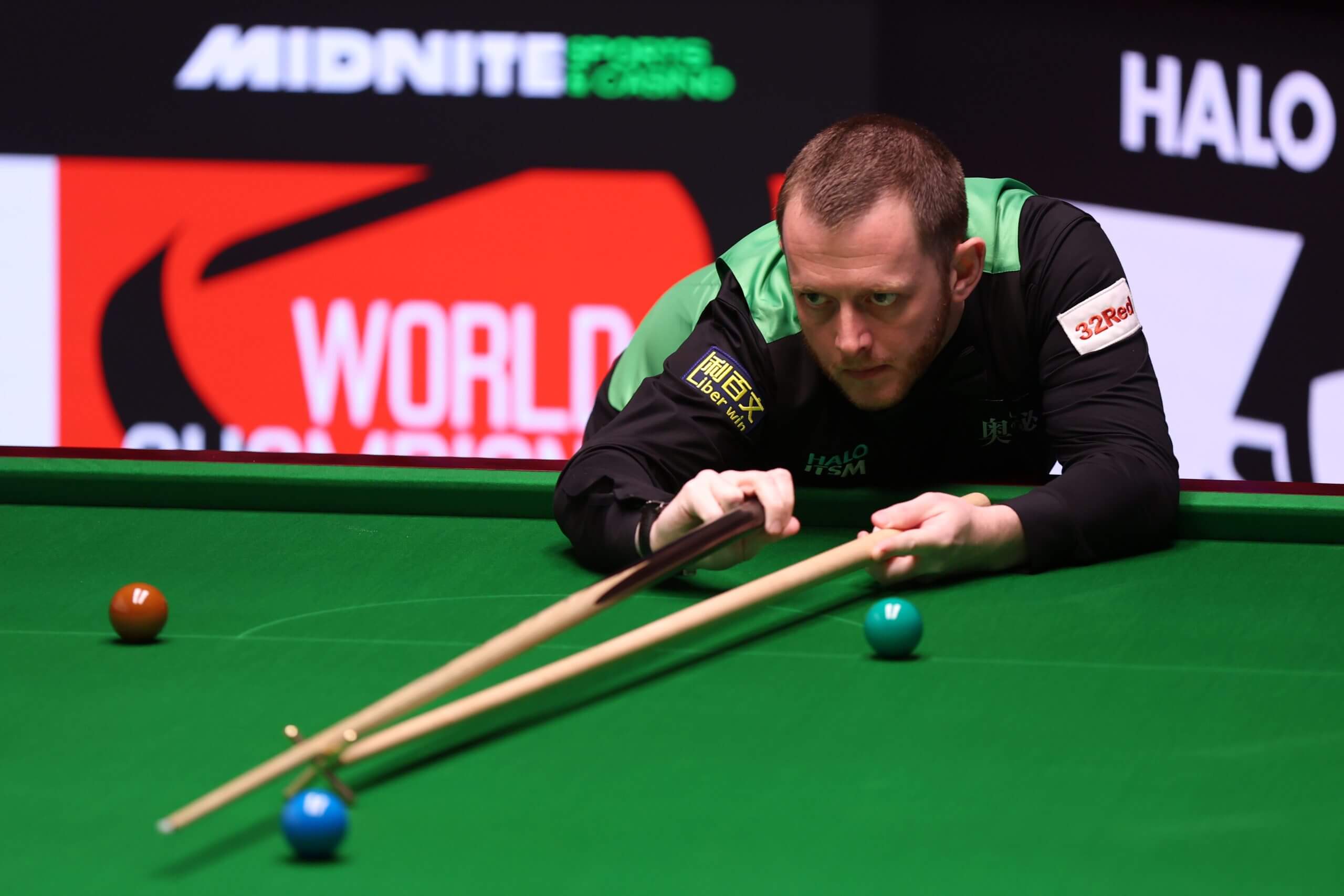
Mark Allen plays a shot against Chris Wakelin during their second-round match at the world championships on April 25, 2025 (George Wood/Getty Images)
And yet, walking from the train station to the venue, it doesn’t exactly feel like the sport’s biggest event — which will be watched by 500 million people in more than 100 countries, and given more than 100 hours of coverage in the UK on BBC and TNT Sports — is just around the corner, save for a few snooker pictures on lampposts.
Admittedly, it’s grey, raining and 9C. A collection of red deckchairs laid out in front of a big screen opposite the Crucible’s entrance are empty. It’s an unthinkable scene for the equivalent world championship in a sport like football or cricket.
Advertisement
Yet, like darts, which is similarly empty outside its World Championship home of Alexandra Palace in London, it’s inside the venue where the magic lies and, yes, you get what that atmosphere talk is all about.
It’s snooker’s equivalent of Paul McCartney (or insert your favoured musician here) performing an intimate acoustic set in your living room.
There is a loose dividing line between an older generation who consider it sacrilege to leave, and then the flip side of Hearn saying things must change, either from an expanded Crucible, or a new venue in Sheffield, or maybe overseas like Saudi. And then the current players, who, inevitably, won’t say no to more prize money.
Former world No.1 Mark Allen, who won £250,000 ($331,752) in Riyadh last year, sits somewhere in the middle.
“I think it’s the history attached to it,” he tells The Athletic.
“When you start out playing snooker, with the greatest of respect to other tournaments, you don’t start out to be Northern Ireland Open champion, even though that means so much to me (Allen hails from Antrim). You want to be world champion.
“It’s so special coming back, it’s my 19th year and I still get goosebumps when I walk out there.
“I don’t think you can recreate that somewhere else. It’s been talked about a lot, will it stay, it would be sad if it left but, ultimately, the world moves on and also money talks.
“What I would say is, if it did move, in 10, 15, 20 years, there’s a new home of snooker. So overnight you’d get a lot of unhappy traditionalist fans, but in the long term, people could get attached to a new place.”
Allen, like the majority of current players, says the treatment in Saudi is excellent, and that crowds could improve over time as they have in China, where players are treated more like footballers, with adoring fans and red-carpet treatment.
Advertisement
While moving the tournament from the Crucible might feel as sacrilegious as ditching the FA Cup final from Wembley or the tennis from Wimbledon, it is a curious notion that the world championship of a sport, which this year featured in its 32 participants 10 Chinese players — including first-time finalist Zhao Xintong — a Belgian, an Australian and an Iranian, is held in the UK’s 10th biggest city every single year.
You wouldn’t hold the football World Cup in Bristol every four years.
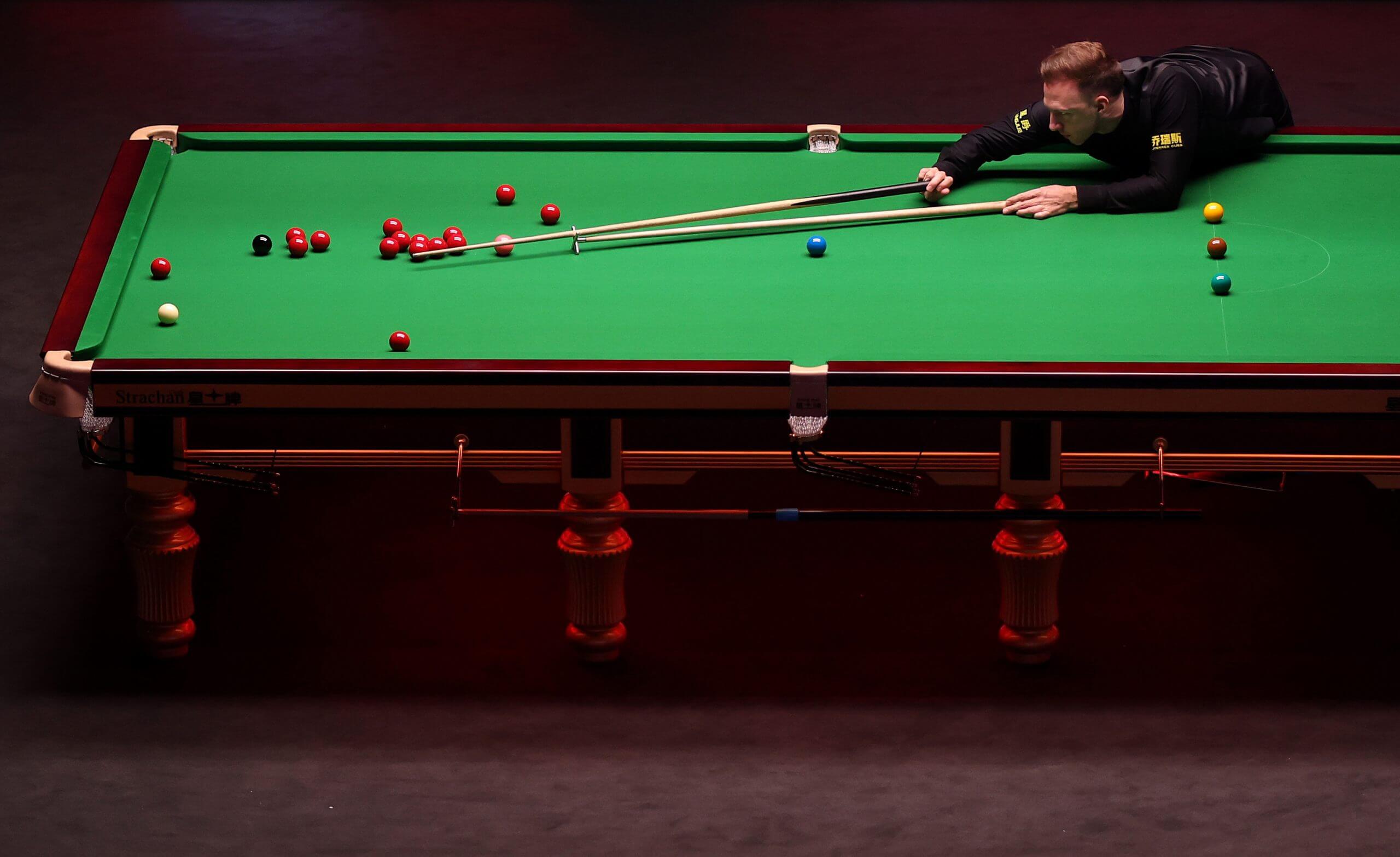
Judd Trump plays a shot against Mark Williams during their semi-final on May 1, 2025 (George Wood/Getty Images)
Neil Robertson, the Australian in question, who won the world title in 2010, tells The Athletic an improved venue in Sheffield would be his preference.
“There are thousands and thousands of fans who don’t get to watch it every year because tickets sell out straight away and the capacity is around 900 people,” he says.
“For the World Championship, they could sell that three times over, easily, which would increase the prize money for the players, bigger venue, better fan interaction, better everything.
“In Saudi Arabia, the players were treated so well, everything was absolutely spot-on, the venue, the playing conditions. The only thing is you’re playing matches for really big prize money but there was no buzz from the fans, very few people watching and you felt you were playing money matches rather than competing in tournaments.
“It’s something hopefully next year they improve on. But in terms of the World Championship, I’m 100 per cent in favour of keeping it in Sheffield.”
It’s a complicated topic, one which is familiar to many other sports. Expand, grow and lose a sense of tradition and history? Or stand still and eschew the money on offer?
After meeting with Sheffield Council last week, Hearn’s public stance suddenly softened, having seen “positivity and enthusiasm”. A resolution is expected before the end of the year, with the Crucible’s World Championship contract running out in 2027.
Advertisement
“Our heart is here, our life is here, the history is here,” Hearn told the BBC. “I think compromise is in the air on both sides and we can do something that maintains the event here and, at the same time, produces much-needed finance to go back to the players.
“We’ve just got to find that additional bit of assistance, which hopefully is going to be government-led, in terms of keeping our events in this country. Sheffield is the ideal home for snooker.”
Perhaps then, snooker will keep its traditional roots while also being able to expand overseas. The world championships may well remain in Sheffield. However, this being the Crucible, just whisper it quietly.
(Illustration: Kelsea Petersen/ The Athletic; George Wood/ Getty Images, Tai Chengzhe/ Getty Images, Michael Reeves/ Getty Images)
This news was originally published on this post .








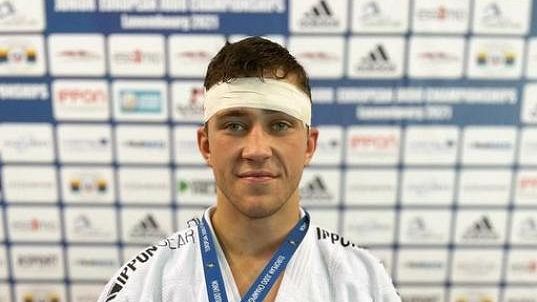
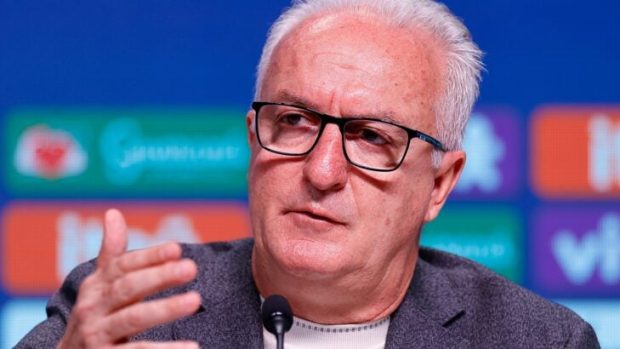

Be the first to leave a comment